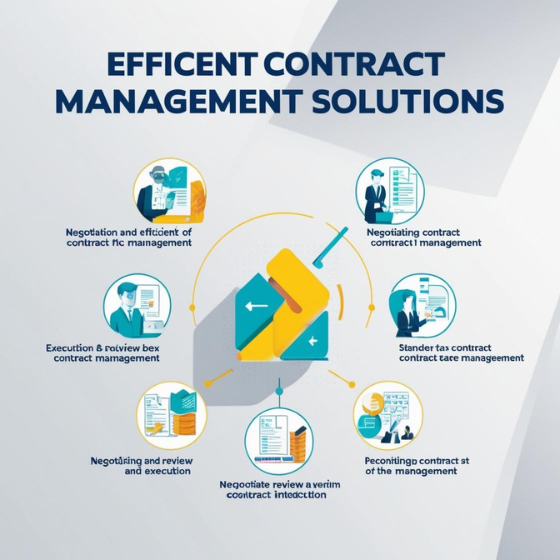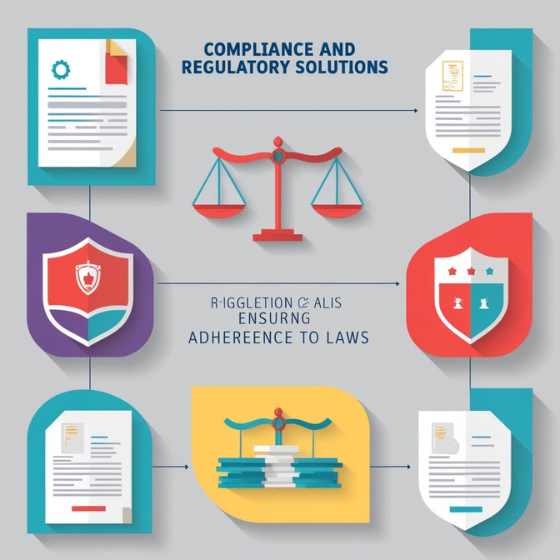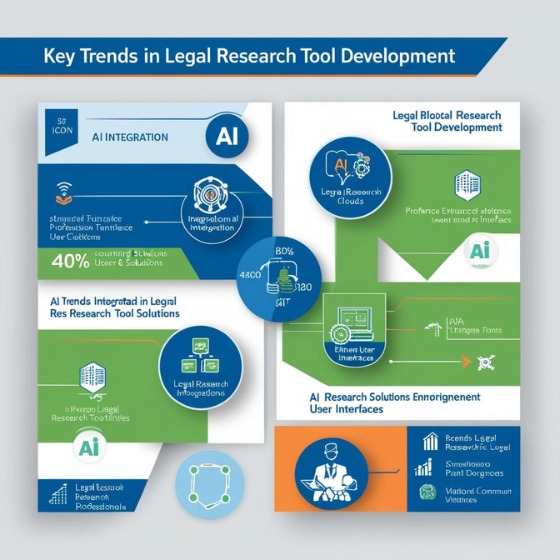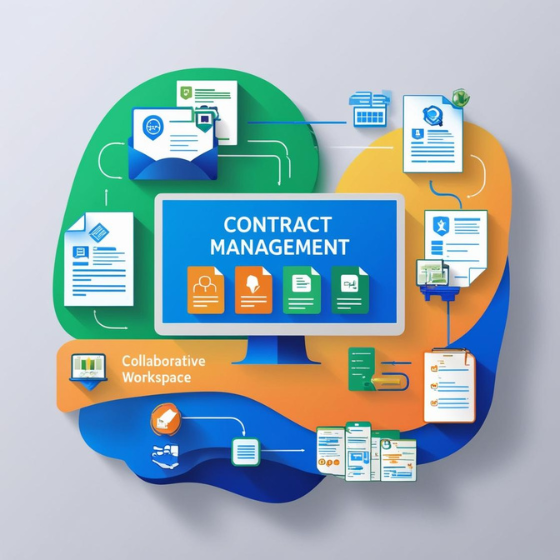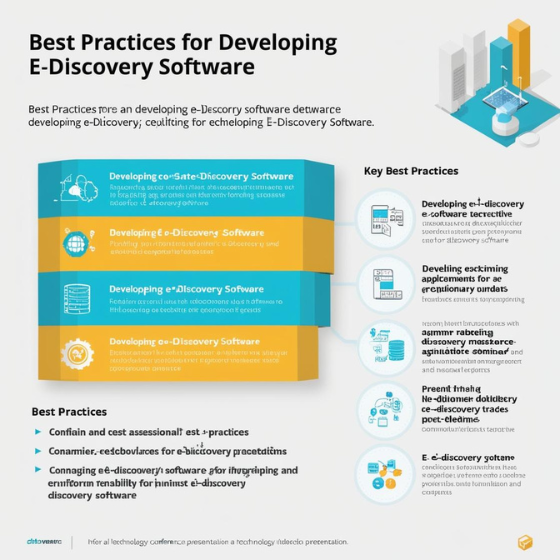Developing Efficient Contract Management Solutions
Contract management is a critical function in any business, ensuring that agreements are organized, monitored, and executed correctly. However, as companies grow and the volume of contracts increases, managing them manually can lead to inefficiencies, compliance risks, and missed opportunities. In today’s fast-paced business environment, organizations need efficient contract management solutions to streamline the entire contract lifecycle—from creation and negotiation to execution and compliance.
In this blog, we will explore how businesses can develop efficient contract management solutions that not only improve operational efficiency but also mitigate legal and financial risks. By leveraging technology, automating workflows, and implementing best practices, companies can take control of their contracts and enhance their overall business performance.
What is Contract Management?
Contract management refers to the process of creating, managing, and tracking contracts between businesses and third parties. It covers every phase of the contract lifecycle, including drafting, negotiation, approval, execution, and monitoring compliance. Effective contract management ensures that businesses meet their obligations, avoid penalties, and maximize the value of each agreement.
Key Stages of Contract Management:
- Creation: Drafting the initial agreement, ensuring it is clear and legally binding.
- Negotiation: Reaching an agreement on terms that work for both parties.
- Approval: Getting necessary approvals from relevant stakeholders before finalizing the contract.
- Execution: Signing the contract and ensuring all parties are aware of their responsibilities.
- Compliance and Renewal: Monitoring the contract’s performance and compliance, and managing renewals or renegotiations when necessary.
Without an efficient system in place, businesses risk missing deadlines, overlooking important clauses, or failing to comply with legal obligations, which could lead to disputes or costly penalties.
Why is Developing Efficient Contract Management Solutions Crucial?
Developing an effective contract management solution is essential for businesses seeking to streamline operations and reduce risks. Here are some of the reasons why businesses must prioritize efficient contract management:
1. Improved Operational Efficiency
An automated contract management system speeds up contract creation, review, and approval processes, reducing manual work and errors. By using templates and pre-approved clauses, organizations can quickly draft contracts and get them into the hands of decision-makers.
2. Risk Mitigation
With contracts, there is always a risk of non-compliance, misunderstandings, or missed deadlines. An efficient contract management system ensures that every contract is reviewed for compliance with legal and industry-specific regulations. It can also send automated reminders for important dates like renewals or contract milestones, preventing missed opportunities or breaches.
3. Cost Savings
Efficient contract management reduces administrative overhead and the costs associated with manual processes. It also ensures businesses get the best terms by monitoring contract performance and tracking renegotiations. Without an efficient system, businesses could be overpaying or underperforming on contract terms.
4. Better Collaboration and Visibility
A centralized system allows stakeholders across departments—legal, procurement, sales, and finance—to collaborate more effectively. With easy access to all contracts and data, stakeholders can quickly review agreements, ensuring alignment and reducing the chance of mistakes.
Steps to Develop Efficient Contract Management Solutions
Developing an efficient contract management solution requires a clear strategy, the right tools, and a focus on best practices. Below, we break down the key steps to ensure successful implementation.
1. Centralize Contract Storage and Access
One of the first steps in creating an efficient contract management solution is centralizing all contracts in one accessible location. This can be done through cloud-based contract management software, which allows businesses to store contracts securely and retrieve them quickly whenever needed.
Key Benefits:
- Improved Accessibility: Stakeholders can access contracts from anywhere, ensuring that key personnel can always find what they need.
- Increased Security: Cloud solutions offer strong security features like encryption and role-based access to protect sensitive information.
- Organized Repository: Centralized storage prevents contracts from being lost or misplaced and helps businesses stay organized.
2. Automate the Contract Lifecycle
Automating various stages of the contract lifecycle reduces manual work, accelerates approval processes, and eliminates errors. Today’s contract management systems come equipped with automated tools to help businesses streamline everything from contract creation to renewals.
Key Automation Features:
- Template Libraries: Pre-approved templates ensure consistency across contracts and accelerate drafting.
- Approval Workflows: Automated workflows route contracts for review and approval, keeping everyone on track and reducing bottlenecks.
- E-Signatures: Digital signatures eliminate the need for in-person meetings, speeding up the execution of contracts.
- Renewal Alerts: Set up automated reminders for upcoming contract expirations or renewal deadlines.
3. Monitor Compliance and Performance
Once a contract is signed, it’s crucial to track compliance with agreed-upon terms. An efficient contract management solution should have built-in compliance tracking and performance monitoring tools.
Key Features to Monitor Compliance:
- Audit Trails: A good contract management system records every action taken on a contract, providing a clear audit trail. This is crucial for compliance and dispute resolution.
- KPIs and Metrics: Track key performance indicators (KPIs) to ensure the terms of the contract are being met. For example, you can monitor payment timelines or service-level agreements (SLAs) to ensure both parties are fulfilling their obligations.
- Legal and Regulatory Compliance: Compliance checks can be integrated into the system to ensure contracts adhere to relevant legal regulations and industry standards, such as GDPR, HIPAA, or Sarbanes-Oxley.
4. Improve Collaboration and Communication
Contract management isn’t just about handling documents—it’s about ensuring that everyone involved has access to the information they need. A well-designed system will allow for seamless collaboration across departments.
Collaboration Features:
- Document Sharing and Version Control: Allow multiple users to access and work on contracts simultaneously, ensuring that everyone is on the same page.
- Commenting and Feedback: Team members can leave comments or suggest edits directly on the contract document, streamlining the review process.
- Task Management: Assign tasks, track progress, and ensure nothing falls through the cracks with task management tools built into the system.
5. Leverage Analytics for Continuous Improvement
To maximize the effectiveness of your contract management solution, leverage analytics to track the performance of your contracts and identify areas for improvement.
Analytics Features:
- Contract Performance Metrics: Analyze how well contracts are meeting agreed-upon terms, helping to identify opportunities for renegotiation or improvement in future contracts.
- Cost Savings Analysis: Evaluate the financial performance of contracts to spot trends in savings or excess costs.
- Contract Lifecycle Metrics: Measure the time it takes to move contracts through the various stages of the lifecycle to identify bottlenecks and optimize workflows.
Choosing the Right Contract Management Software
To develop an efficient contract management solution, businesses must select the right contract management software that meets their unique needs. Here are a few factors to consider when choosing a solution:
- User-Friendliness: The software should be easy to use and accessible to all team members, regardless of their technical expertise.
- Customization: Look for a solution that can be customized to fit your business’s contract types, workflows, and compliance needs.
- Integration Capabilities: Ensure the software integrates with other business tools such as CRM, ERP, and document management systems.
- Scalability: Choose a system that can grow with your business as your contract volume increases.
Conclusion
Developing an efficient contract management solution is crucial for any business looking to improve operational efficiency, reduce risks, and ensure compliance. By centralizing contract storage, automating workflows, monitoring compliance, and improving collaboration, businesses can streamline their contract management process and avoid costly mistakes.
If you’re looking to implement a contract management solution tailored to your needs, contact Sodio today. We specialize in helping businesses design and deploy efficient contract management systems that ensure compliance, reduce risk, and improve overall business performance.
